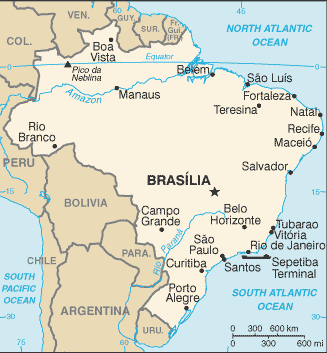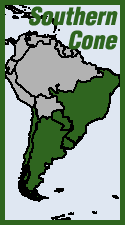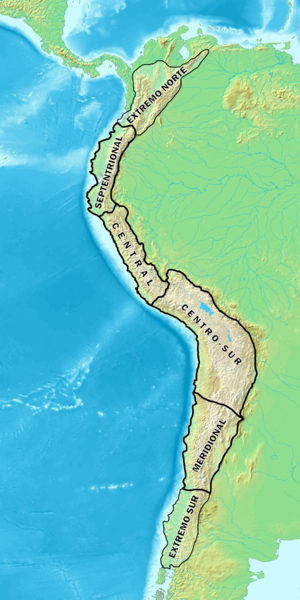 At least three cars, including a police vehicle, were set ablaze in the Rio de Janeiro favela of Complexo do Alemão on April 29 after the fatal shooting of an elderly woman—the latest in a series of such outbreaks as Brazilian authorities attempt to clean up Rio's slums before the World Cup games open next month. Arlinda Bezerra de Assis, 72, died after being shot in the stomach during a gun battle between police and presumed gang members. In another incident on April 23, the favela violence actually spilled into Rio's posh beachfront tourist districts—an unprecedented occurrence that doubtless struck fear deep into the hearts of the city fathers. The protests broke out in the Pavao-Pavaozinho favela, perched on the hills overlooking the famed Copacabana district. The riots were sparked after word spread that the body of Douglas Rafael da Silva Pereira, 25, a popular dancer on Brazil's Globo TV network, had been discovered in the favela—apparently killed as "collateral damage" in another one of the frequent police shoot-outs with drug gangs. Residents swept down into Copacabana, setting fires and hurling bottles at police, vehicles and businesses. The violence also spilled over into nearby Ipanema, another posh tourist district. The young dancer's funeral two days later also exploded into a riot, as mourners blocked traffic after leaving the Sao Joao Batista cemetery, chanting "Justice! Justice! Police murderers!" Police used tear-gas to clear the intersection. The Military Police "pacification" campaign aimed at getting the favelas under control ahead of the World Cup and 2016 Summer Olympics looks like it may be backfiring horribly. (World Bulletin, April 29; AFP, April 25; Daily Mail, VOA, April 23)
At least three cars, including a police vehicle, were set ablaze in the Rio de Janeiro favela of Complexo do Alemão on April 29 after the fatal shooting of an elderly woman—the latest in a series of such outbreaks as Brazilian authorities attempt to clean up Rio's slums before the World Cup games open next month. Arlinda Bezerra de Assis, 72, died after being shot in the stomach during a gun battle between police and presumed gang members. In another incident on April 23, the favela violence actually spilled into Rio's posh beachfront tourist districts—an unprecedented occurrence that doubtless struck fear deep into the hearts of the city fathers. The protests broke out in the Pavao-Pavaozinho favela, perched on the hills overlooking the famed Copacabana district. The riots were sparked after word spread that the body of Douglas Rafael da Silva Pereira, 25, a popular dancer on Brazil's Globo TV network, had been discovered in the favela—apparently killed as "collateral damage" in another one of the frequent police shoot-outs with drug gangs. Residents swept down into Copacabana, setting fires and hurling bottles at police, vehicles and businesses. The violence also spilled over into nearby Ipanema, another posh tourist district. The young dancer's funeral two days later also exploded into a riot, as mourners blocked traffic after leaving the Sao Joao Batista cemetery, chanting "Justice! Justice! Police murderers!" Police used tear-gas to clear the intersection. The Military Police "pacification" campaign aimed at getting the favelas under control ahead of the World Cup and 2016 Summer Olympics looks like it may be backfiring horribly. (World Bulletin, April 29; AFP, April 25; Daily Mail, VOA, April 23)

 Brazilian Military Police backed by Marine troops occupied the massive Maré favela next to Rio de Janeiro's Galeao international airport on March 31, allegedly without firing a shot. The aim was to secure one of the city's most violent districts, long under control of drug gangs, ahead of the World Cup, to be held in Brazil in June. Shock troops of the elite Special Police Operations Battalion (BOPE) and Marines in armored vehicles and helicopters secured the Maré area, where 130,000 people live in poverty on the north side of Rio. Police said they seized guns and 450 kilos of marijuana, and arrested two suspected dealers. But residents said most gang leaders slipped out the favela ahead of the occupation. The operation had been expected; in preceding days Police Pacification Units (UPPs) were installed in 174 of Rio's favelas— home to around 600,000 people. (
Brazilian Military Police backed by Marine troops occupied the massive Maré favela next to Rio de Janeiro's Galeao international airport on March 31, allegedly without firing a shot. The aim was to secure one of the city's most violent districts, long under control of drug gangs, ahead of the World Cup, to be held in Brazil in June. Shock troops of the elite Special Police Operations Battalion (BOPE) and Marines in armored vehicles and helicopters secured the Maré area, where 130,000 people live in poverty on the north side of Rio. Police said they seized guns and 450 kilos of marijuana, and arrested two suspected dealers. But residents said most gang leaders slipped out the favela ahead of the occupation. The operation had been expected; in preceding days Police Pacification Units (UPPs) were installed in 174 of Rio's favelas— home to around 600,000 people. ( Brazilian Foreign Minister Antonio Patriota resigned Aug. 25 in the midst of a diplomatic scandal concerning a Bolivian opposition figure who accused the Evo Morales government of narco-corruption. Bolivian senator
Brazilian Foreign Minister Antonio Patriota resigned Aug. 25 in the midst of a diplomatic scandal concerning a Bolivian opposition figure who accused the Evo Morales government of narco-corruption. Bolivian senator 





Recent comments
2 weeks 4 days ago
2 weeks 4 days ago
5 weeks 5 days ago
6 weeks 4 days ago
10 weeks 4 days ago
14 weeks 3 days ago
18 weeks 3 days ago
19 weeks 1 day ago
29 weeks 1 day ago
33 weeks 2 days ago